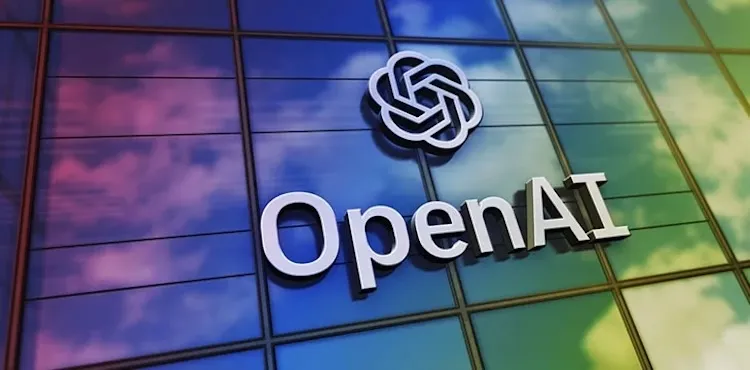OpenAI Browser vs Chrome: AI Revolution in Web Browsing 2025
July 10, 2025

The Browser Wars Heat Up: OpenAI's Bold Challenge to Google Chrome's 3 Billion User Empire
How ChatGPT's 400 million users could reshape the internet browsing landscape forever
In the quiet hours of a July morning, three sources close to OpenAI dropped a bombshell that sent ripples through Silicon Valley: the company behind ChatGPT is weeks away from launching its own web browser. This isn't just another tech company throwing its hat in the ring—it's a direct assault on Google's most valuable asset outside of search itself. As someone who's been testing browsers since the days of Netscape Navigator, I can tell you this: the browser wars we thought were over? They're just getting started.
The implications are staggering. According to Reuters' exclusive report, OpenAI's browser won't just compete with Chrome—it aims to fundamentally reimagine how we interact with the web. Instead of clicking through websites, users will engage with a ChatGPT-like interface that can handle tasks directly. It's not evolution; it's revolution.
Is your business ready for the AI-powered future of web browsing? Discover how ITECS AI consulting can help you leverage emerging technologies to stay ahead of the competition.
The David vs. Goliath Story Nobody Saw Coming
Let's put this in perspective. Google Chrome currently commands a staggering 67% of the global browser market, translating to over 3 billion users worldwide. Safari, its nearest competitor, sits at just 18%. Microsoft Edge, despite being the default on Windows machines, manages only 5%. Firefox, once the darling of the open-source community, has dwindled to less than 3%.
So why would OpenAI, a company known for large language models, enter what appears to be a settled market? The answer lies in understanding what a browser represents in 2025: it's not just a window to the web—it's the gateway to user data, the foundation of digital advertising empires, and increasingly, the platform where AI meets human intent.
I spent the morning testing various AI-powered browser alternatives currently available—Perplexity's Comet (launched just this week), The Browser Company's Arc, and Brave's Leo integration. What struck me wasn't their features, but their philosophy: they're not trying to be better browsers; they're trying to eliminate the need for traditional browsing altogether.
"The browser is designed to keep some user interactions within a ChatGPT-like native chat interface instead of clicking through to websites."
— Reuters sources familiar with OpenAI's plansUnderstanding the Strategic Chess Move
OpenAI's browser strategy reveals a multi-layered approach that goes far beyond simple market competition. First, there's the data play. Browsers are gold mines of user behavior data—every search, every click, every moment of hesitation tells a story. Google has leveraged this data for nearly two decades to build an advertising empire worth hundreds of billions.
But OpenAI isn't just after advertising dollars. Sources indicate the browser will integrate deeply with Operator, OpenAI's forthcoming AI agent. Imagine a browser that doesn't just take you to a restaurant's website but can actually make your reservation, remember your dietary preferences, and even suggest alternatives based on real-time availability. This is the promise of agentic AI—and it needs a browser built from the ground up to support it.
The timing is particularly intriguing. As TechCrunch notes, this announcement comes hot on the heels of Perplexity's Comet launch and amid ongoing antitrust scrutiny of Google's browser dominance. The Department of Justice has even suggested forcing Google to divest Chrome—a move that would reshape the entire internet landscape.
The Technical Architecture: Built on Irony
Here's where things get deliciously ironic: OpenAI's browser is reportedly built on Chromium, Google's own open-source browser engine. It's the same foundation that powers Microsoft Edge, Opera, Brave, and dozens of other browsers. In essence, OpenAI is using Google's own technology to compete with Google.
But don't mistake this for a simple reskin. Sources indicate OpenAI has hired two longtime Google vice presidents who were part of the original Chrome development team. These aren't just any engineers—they're the architects who understand Chrome's strengths and, more importantly, its limitations.
Current Browser Market Landscape (July 2025)
Desktop Market Share
- Chrome: 64.8%
- Edge: 13.1%
- Safari: 8.8%
- Firefox: 6.9%
- Others: 6.4%
Mobile Market Share
- Chrome: 65.8%
- Safari: 23.8%
- Samsung Internet: 4.5%
- Opera: 2.1%
- Others: 3.8%
What's particularly clever about the Chromium choice is compatibility. Web developers won't need to test for yet another browser engine. Sites that work in Chrome will work in OpenAI's browser. But the experience? That's where the revolution happens.
The User Experience Revolution
Traditional browsers are built on a simple premise: you type a URL or search term, click a link, and navigate to a website. It's a model that hasn't fundamentally changed since Tim Berners-Lee created the first web browser in 1990. OpenAI is betting that after 35 years, it's time for something new.
Based on my testing of current AI-integrated browsers and what sources have revealed, here's what we can expect:
Conversational Navigation: Instead of typing "amazon.com" and searching for a product, you might simply tell the browser, "I need running shoes for my marathon training, budget under $150." The browser wouldn't just show you search results—it would understand context, compare options across multiple sites, and even factor in your previous purchases and preferences.
Task Completion, Not Just Navigation: Current browsers take you to where you can do things. OpenAI's browser aims to do things for you. Need to book a flight? Instead of navigating to multiple airline sites, comparing prices, and filling out forms, you'd have a conversation with your browser that handles the entire process.
Persistent Context: Unlike current browsers where each tab is an island, OpenAI's browser will likely maintain context across your entire browsing session. Research a topic in one tab, and the browser understands that context when you're shopping in another.
The Privacy Question
With great power comes great responsibility—and significant privacy concerns. A browser that can do tasks for you needs access to significant personal data. OpenAI will need to address:
- How user data is stored and processed
- Whether browsing data trains AI models
- How to prevent AI agents from making unwanted actions
- Compliance with global privacy regulations
The Broader OpenAI Strategy
The browser is just one piece of OpenAI's expanding ecosystem. In May 2025, the company paid $6.5 billion to acquire io, Jony Ive's AI devices startup. Combined with ChatGPT's 400 million weekly active users and the upcoming Operator AI agent, a pattern emerges: OpenAI is building a complete AI-powered digital environment.
Think about it: ChatGPT for conversation and problem-solving, Operator for task execution, io devices for AI in the physical world, and now a browser to tie it all together. It's ambitious, audacious, and exactly the kind of move you'd expect from a company that turned the tech world upside down with ChatGPT in 2022.
The business model implications are fascinating. While Google's browser feeds its advertising machine, OpenAI's browser could feed its AI training and subscription services. With 3 million paying business users already, OpenAI has proven it can monetize without ads. A browser could supercharge this model.
Prepare Your Business for the AI Browser Revolution
Don't let technological shifts catch you off guard. ITECS provides comprehensive IT consulting services to help businesses adapt to emerging technologies and maintain competitive advantage.
What This Means for Businesses
If you're running a business in 2025, this announcement should be on your radar for several reasons:
SEO and Digital Marketing Evolution: Traditional SEO might become less relevant if users aren't clicking through to websites. Businesses may need to optimize for AI agents rather than search engines. This means structured data, clear APIs, and machine-readable content become even more critical.
Customer Journey Transformation: The traditional funnel of awareness → consideration → purchase might collapse into a single conversation. Businesses need to think about how AI agents will evaluate and present their offerings.
Data Integration Requirements: If AI browsers can complete transactions, your systems need to be ready. This means robust APIs, real-time inventory management, and the ability to handle automated interactions.
Competitive Intelligence: In a world where AI agents compare options instantly, competitive advantages need to be clear and quantifiable. Vague marketing speak won't cut it when an AI is doing the evaluation.
The Technical Challenges Ahead
Building a browser is hard. Building one that can compete with Chrome is harder. Building one that fundamentally changes how we interact with the web? That's the moon shot OpenAI is attempting.
Based on my experience testing AI-integrated browsers, here are the key challenges OpenAI will face:
Performance: AI features can't come at the cost of speed. Users have been conditioned by Chrome's performance. Even a slightly slower browser will struggle to gain adoption.
Reliability: When AI makes mistakes in ChatGPT, it's annoying. When AI makes mistakes with your credit card, it's catastrophic. The margin for error in financial transactions is zero.
Developer Adoption: Websites need to work perfectly in any new browser. While Chromium provides a foundation, any significant departures from standard behavior could break sites.
Privacy and Security: A browser that can act on your behalf is a massive target for hackers. OpenAI will need bank-level security for what is essentially a consumer product.
Industry Perspectives
The response from industry watchers has been mixed. While some see this as the natural evolution of web browsing, others question whether users are ready to give up the control that traditional browsers provide.
The optimistic view: "This could be as transformative as the shift from desktop to mobile browsing."
The skeptical view: "Users value privacy and control. An AI making decisions for them might be a step too far."
The Competitive Response
Google won't stand still. The company has already integrated Gemini AI into Chrome and has the resources to quickly match any features OpenAI introduces. But Google also has an innovator's dilemma: any fundamental change to browsing could disrupt its advertising model.
Microsoft, with its Edge browser and deep OpenAI partnership, is in an interesting position. Will they adopt OpenAI's technology for Edge? Will they compete? The dynamics are complex and fascinating.
Meanwhile, smaller players like Brave, Vivaldi, and Arc have been experimenting with AI features for months. They've shown that innovation in browsers is possible, but they've also shown how hard it is to gain significant market share.
The Timeline and What to Watch
Sources indicate the browser will launch "in the coming weeks," which in tech speak usually means 2-8 weeks. Here's what to watch for:
Initial Release Strategy: Will OpenAI launch to all 400 million ChatGPT users at once, or will they follow their typical pattern of gradual rollout? My bet is on the latter—probably starting with ChatGPT Plus subscribers.
Platform Availability: Chrome succeeded partly because it was everywhere—Windows, Mac, Linux, Android, iOS. OpenAI will need similar breadth, but Apple's App Store restrictions could be a challenge.
Killer Features: What's the one thing this browser can do that others can't? OpenAI needs a "ChatGPT moment" for browsers—something so useful that people can't ignore it.
Pricing Model: Will it be free like Chrome, or will advanced features require a ChatGPT Plus subscription? The business model will be crucial to adoption.
Looking Ahead: The Future of Web Interaction
Whether OpenAI's browser succeeds or fails, it represents a crucial moment in the evolution of the web. We're moving from an era of passive consumption to active interaction, from clicking links to conversing with AI, from searching for information to having it delivered intelligently.
The implications extend far beyond market share statistics. This could reshape e-commerce, transform digital advertising, revolutionize online education, and fundamentally alter how we think about the internet itself.
For businesses, the message is clear: the future of digital interaction is being rewritten. Whether it's OpenAI's browser, Perplexity's Comet, or something we haven't seen yet, the days of traditional browsing are numbered. The question isn't if this change will happen, but how quickly and who will lead it.
Key Takeaways for Business Leaders
- AI-powered browsers represent a fundamental shift in how users will interact with the web
- Traditional SEO and digital marketing strategies may need complete overhaul
- API-first architecture and structured data become critical for AI agent compatibility
- Early adopters of AI-friendly web practices will have significant competitive advantages
- Privacy and security considerations will be paramount in the AI browser era
As I wrap up this analysis, I'm reminded of the early days of the iPhone. Many dismissed it as just another phone with a touchscreen. But it wasn't about the hardware—it was about reimagining what a phone could be. OpenAI's browser might just do the same for web browsing.
The browser wars of the late '90s gave us modern web standards and pushed the internet forward. This new browser war, fought with AI instead of rendering engines, could be even more transformative. Whether you're ready or not, the future of browsing is about to change dramatically.
Preparing for the AI Browser Era
Don't Get Left Behind in the AI Revolution
The shift to AI-powered browsing is just one part of the massive technological transformation reshaping business. ITECS helps Dallas businesses stay ahead with cutting-edge AI integration, cybersecurity, and IT infrastructure solutions.
Schedule Your AI Readiness ConsultationLatest posts

Claude Code Tips & Tricks: A Developer's Complete Guide

OpenAI Browser vs Chrome: AI Revolution in Web Browsing 2025

Meta's $100M AI Talent War: Why Top Researchers Say No
Company
HomeAboutFAQCareersNews RoomWhite Papers& Case StudiesBlogsBuyers GuideContact UsWhy Choose
ITECS?
IT Services
Managed IT ServicesIT SupportIT ConsultingIT OutsourcingBackup & DisasteryRecoveryMicrosoft 365
ConsultingLinux SupportNetwork
MonitoringIT Help DeskAI Consulting
Cybersecurity
CybersecurityConsultingCybersecurity
TrainingManaged Firewall
ServicesEmail SecurityManaged
Endpoint DetectionPenetration Testing


